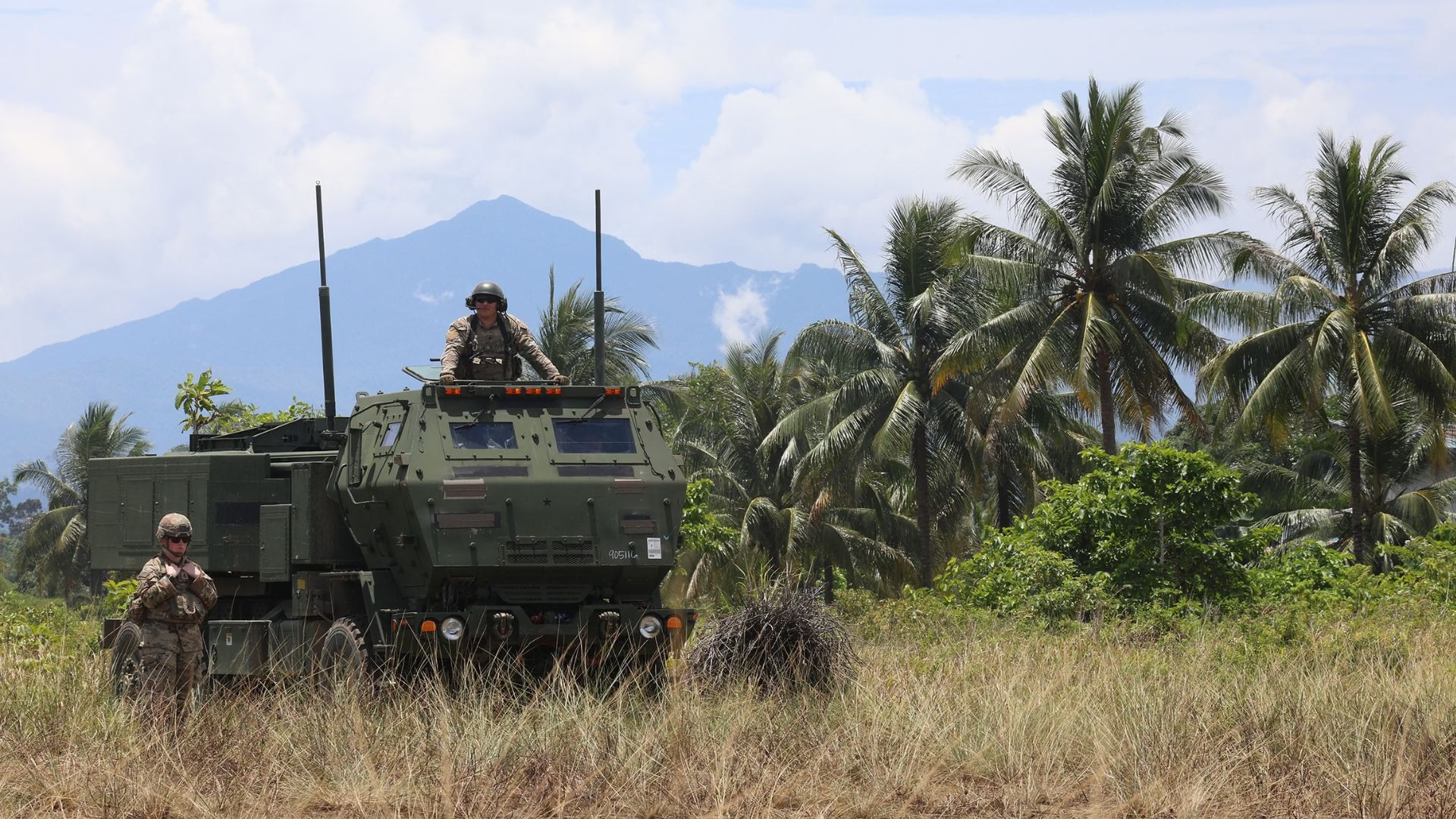Evening Brief: Qatar Monitors Gulf Radiation as Israeli Strikes Target Iranian Nuclear, Energy Sites

Good evening! Settle in with your SOFREP Evening Brief for Wednesday, June 18, 2025. Here’s what’s making headlines: Israel’s latest strikes on Iranian nuclear and energy sites sparked Gulf radiation concerns, with Qatar now on alert. Iran’s missile response fell short, hampered by Israeli defenses and damaged stockpiles. The US showcased high-tech military integration in Asia, greenlit a $211 million missile sale to Italy, and stayed vague on any action against Iran. Private US aid firms are under fire for operations in war zones. A Russian strike killed 28 in Kyiv. Taiwan launched sea trials for its first domestically built submarine, and Cambodia rallied masses as border tensions with Thailand heat up.
—
Qatar Monitors Gulf Radiation as Israeli Strikes Target Iranian Nuclear, Energy Sites
Qatar is actively monitoring radiation levels in the Gulf following Israeli airstrikes on Iranian nuclear and energy facilities, according to Foreign Ministry spokesman Majed al-Ansari.
Ansari stated Tuesday that while there is no immediate cause for concern, continued escalation could bring unpredictable consequences.
The Israeli strikes, launched Friday, have targeted Iran’s nuclear infrastructure and energy assets, including a gas facility near the South Pars gas field on the Gulf coast. The attacks have triggered five days of missile exchanges between Israel and Iran.
Qatar condemned the strikes as “reckless,” warning that any targeting of nuclear or fuel sites in the Gulf could have serious, region-wide consequences.
Video shows plumes of smoke rising from the direction of the Khojir missile production complex in Tehran following a wave of Israeli air strikes across Iran. Israel says its latest attacks have targeted weapons facilities and nuclear centrifuge production plants. pic.twitter.com/uaBMEMatjk
— Al Jazeera English (@AJEnglish) June 18, 2025
Ansari emphasized the Gulf’s importance as a primary water source and urged the international community to prevent further escalation.
Iran informed the International Atomic Energy Agency (IAEA) that its Bushehr nuclear plant, located on the Gulf coast, was not struck. Qatar confirmed its energy facilities remain secure.
Iran Falls Short of Missile Threat as Israeli Strikes Undermine Arsenal
Iran reportedly planned to launch 1,000 missiles at Israel in retaliation for recent Israeli strikes, but has so far only fired around 350, according to Israeli Defense Forces estimates.
Analysts say Iran’s missile campaign has underperformed, revealing gaps between its theoretical capabilities and actual wartime execution.
Before the conflict, Iran’s missile arsenal—estimated at 3,000—was viewed as its core deterrent alongside regional proxy forces. But Israeli strikes targeted critical launch infrastructure early in the campaign, significantly degrading Iran’s capabilities. Experts now estimate Iran has lost up to 50 percent of its arsenal.
2/ The IDF targeted infrastructure linked to the Islamic Revolutionary Guards Corps (IRGC) and the Iranian nuclear weapons program.
The International Atomic Energy Agency (IAEA) confirmed on June 18 that Israeli airstrikes targeted two centrifuge production facilities in and… pic.twitter.com/XoMSlNvoUo
— Institute for the Study of War (@TheStudyofWar) June 18, 2025
Only a limited portion of Iran’s missiles have the range to reach Israel. Among these are modern medium-range systems like the Ghadr, Khorramshahr, and hypersonic models such as the Fattah, Haj Qassem, and Qassem Bashir. These solid-fuel missiles are faster to deploy and harder to intercept due to maneuverable re-entry capabilities.
Despite these technological advantages, Israel’s air defenses have intercepted the majority of Iranian missiles.
Experts believe Iran is already using its best missiles, as saving them would risk destruction by Israeli strikes.
⭕️ 60 IAF Jets Strike 20+ Military Targets in Tehran
The IDF struck key nuclear and missile sites across Tehran, including:
– Uranium enrichment & centrifuge sites
– Missile & air defense production facilities
– Nuclear weapons R&D centersThese sites fuel Iran’s weapons… pic.twitter.com/9p8EJ4CJkG
— Israel Defense Forces (@IDF) June 18, 2025
The limited effectiveness of Iran’s missile response casts doubt on its deterrence value and reveals key operational vulnerabilities.
Lockheed Martin, US Army Demonstrate CJADC2 Integrated Fires During Balikatan ’25
Lockheed Martin and the US Army have recently conducted a virtual demonstration of joint integrated fires using the Combined Joint All-Domain Command and Control (CJADC2) system during Exercise Balikatan 25—the largest annual US-Philippines military drill and the system’s first use in the Indo-Pacific theater.
The demonstration showcased real-time targeting coordination across systems not originally designed to work together. It integrated sensors, effectors, and command systems to redirect a rocket mid-flight toward a moving surface target, enhancing the High Mobility Artillery Rocket System’s precision against ground and maritime threats.

CJADC2, a US Department of Defense initiative, links all military branches across land, sea, air, space, and cyber domains through a global network of over 48,000 miles of communications infrastructure. The system enables faster, unified decision-making and engagement, supporting advanced missile defense and hypersonic threat response.
US Approves $211M Sale of Advanced Air-to-Air Missiles to Italy
The US State Department approved a $211 million foreign military sale to Italy earlier this week for 70 Advanced Medium-Range Air-to-Air Missiles (AMRAAM), including 30 AIM-120D-3 and 40 AIM-120C-8 variants, along with related equipment and support.
The deal aims to enhance Italy’s air-to-air combat capabilities and strengthen NATO interoperability. Italy, already operating AMRAAMs, is expected to integrate the new systems without difficulty.
RTX Corporation is the principal contractor, with no offset agreements attached.
The AIM-120D-3 is the newest variant, featuring upgraded guidance systems and extended range via a System Improvement Program. The AIM-120C-8, an export-only version, includes similar hardware updates with alternate software. Both versions have an estimated range of around 99 miles.
Hegseth Declines to Confirm US Strike Plans on Iran as Tensions Escalate
Defense Secretary Pete Hegseth refused to confirm during a Senate Armed Services Committee hearing whether the US is preparing for military action against Iran amid rising tensions following Israel’s large-scale offensive on Iranian nuclear targets.
Hegseth said any decisions rest with President Donald Trump and declined to disclose whether he had provided military options to the White House.
The hearing came as Israel’s strikes, which have killed top Iranian officials and damaged nuclear sites, triggered retaliatory missile barrages from Iran.
President Trump has remained deliberately vague about possible US involvement, stating, “I may do it or I may not,” while also demanding “unconditional surrender” from Iran in a Truth Social post.
Israel is reportedly pressuring the US to join its campaign by deploying bunker-buster bombs to destroy Iran’s Fordo facility—an operation that would require US B-2 bombers and direct military involvement.
.@SecDef on Iran: “They had an opportunity to make a deal, they should have made a deal. President Trump’s word means something. The world understands that and at the Defense Department our job is to stand ready and prepared with options and that’s precisely what we’re doing.” pic.twitter.com/9Wfn4SF65h
— CSPAN (@cspan) June 18, 2025
General Dan Caine, Chairman of the Joint Chiefs, also declined to assess whether such strikes would shorten the conflict. Meanwhile, Iran has threatened significant retaliation if the US intervenes, warning of strikes on American bases across the Middle East.
As war fears mount, lawmakers are split. Some, like Sen. Tim Kaine and Rep. Ro Khanna, have introduced resolutions to bar US military action without congressional approval. Others, including Sen. Dan Sullivan, support Israeli actions and advocate for reestablishing deterrence against Iran.
Trump previously gave Iran a 60-day deadline for a new nuclear agreement.
Hegseth concluded, “Our job is to stand ready and prepared with options,” adding, “The question is, in the coming days, exactly which direction that goes.”
“They do wanna come and see us. They want to see me in the White House, that’s a big statement,” Trump said from the Oval Office moments ago. Iran has categorically denied those claims.
Trump also said he holds daily calls with Netanyahu, and warned: “If Iran got a nuclear… https://t.co/0FV8nGo446 pic.twitter.com/2JZhS1VqTg
— Drop Site (@DropSiteNews) June 18, 2025
Private US Military Contractors Deliver Aid in War Zones, Stir Global Controversy
Private US firms led by retired military and intelligence officers are delivering humanitarian aid in conflict zones like South Sudan and Gaza, raising alarm in the global aid community over the growing militarization and politicization of relief efforts.
Last week, Fogbow, a US firm run by ex-CIA and defense officials, dropped 16 tons of food over South Sudan’s Nasir town amid ongoing civil conflict. The company, contracted by South Sudan’s government, claims to bring security and logistics expertise to humanitarian work. However, critics warn its profit-driven model and lack of neutrality risk aiding combatants and undermining civilian trust.
With the inestimable @joe_falzetta, I just published an investigation in @newhumanitarian, looking at the fortunes of Fogbow, a private US company which has been involved in humanitarian operations in #Gaza, #Sudan, and #SouthSudan: https://t.co/aR4jrmMreH pic.twitter.com/flOgLeTVzJ
— Joshua Craze (@joshua_craze) June 16, 2025
Fogbow previously proposed aid delivery to Gaza and has conducted drops in Sudan. Former UN food chief David Beasley now advises the firm. In Gaza, another US firm—Safe Reach Solutions—has coordinated aid with Israeli backing, drawing further scrutiny. Aid workers allege the Gaza operation aligns with Israel’s effort to concentrate Palestinians in the south, with reports of civilians being killed or wounded while seeking food.
Humanitarian organizations and UN officials argue that such operations blur the lines between combat and aid, empower warring governments to control distribution, and compromise long-held principles of neutrality and independence.
The World Food Program distanced itself from Fogbow’s efforts, and critics say the trend marks a dangerous shift in international humanitarian response.
Russian Missile Strike on Kyiv Apartment Building Kills 28 in Deadliest Attack This Year
Emergency workers in Kyiv recovered more bodies Wednesday from the rubble of a nine-story apartment building hit by a Russian missile, raising the death toll to 28.
The strike, which targeted the Solomianskyi district, marks the deadliest Russian assault on the Ukrainian capital in 2024. Twenty-three victims were inside the collapsed building, while five others died in separate areas of the city.
The overnight attack from Monday into Tuesday was part of a large-scale barrage involving over 440 drones and 32 missiles, in what Ukrainian President Volodymyr Zelenskyy called one of the war’s most intense bombardments. The missile impact destroyed windows and doors in nearby buildings and temporarily delayed rescue operations due to ongoing drone strikes in the vicinity.
Today, with all of Ukraine, we join a day of mourning in Kyiv for the victims of Russia’s June 17 attack. 21 dead, including an American. More than 134 injured, including children. We extend deepest condolences to the victims’ families. This senseless attack runs counter to… pic.twitter.com/VzS5JI41Oc
— U.S. Embassy Kyiv (@USEmbassyKyiv) June 18, 2025
Kyiv authorities declared Wednesday a day of mourning. Survivors and relatives gathered at the site, many in shock, as emergency psychologists provided crisis counseling. Among the injured was a local school handyman and his wife, who were trapped for 30 minutes before rescue teams reached them.
The US Embassy in Kyiv condemned the attack, stating it contradicts efforts by President Donald Trump’s administration to negotiate an end to the war. Meanwhile, Ukraine continues to call for stronger international pressure on Russia as the conflict enters its fourth year.
Taiwan Begins Sea Trials of First Indigenous Submarine
Taiwan has launched sea trials for its first domestically built submarine, part of a defense initiative to bolster asymmetric warfare capabilities against potential Chinese aggression.
The submarine is the first of eight planned under a program initiated in 2016.
Shipbuilder CSBC Corp confirmed the vessel began trials Saturday in Kaohsiung and completed its first stage—a floating navigation test—by Tuesday. Further submerged navigation testing is planned, with full trials expected to finish by September 30 and delivery by November’s end.
#Taiwan’s first indigenous defense submarine prototype, the Narwhal, also known as Hai Kun, completes an initial sea acceptance test, June 17, off the coast of southern Taiwan’s #Kaohsiung City. (📸CSBC Corp. Taiwan) pic.twitter.com/RkKBUDQ7Ve
— Taiwan Review (@Taiwan_Review) June 18, 2025
The 80-meter, 2,500–3,000 ton submarine includes combat systems and torpedoes from Lockheed Martin. Taiwan currently operates only two aging Dutch-built submarines, while China has developed one of the world’s largest navies.
The program has faced political resistance. Taiwan’s opposition parties, which control parliament, froze part of the submarine budget pending trial results.
Critics warn that cutting defense funds could undermine Taiwan’s ability to deter Beijing’s growing military threat.
Cambodia Holds Mass Rally Amid Escalating Border Tensions with Thailand
Tens of thousands gathered in Phnom Penh on Wednesday to back Cambodia’s government and military as tensions with Thailand escalate over a disputed stretch of borderland.
The show of solidarity follows a brief armed clash in May, during which one Cambodian soldier was killed in a contested “no man’s land” both countries claim.
Though both sides agreed to de-escalate, retaliatory measures continue. Thailand has imposed border crossing restrictions and barred Thai nationals from entering Cambodia for gambling or work.
Cambodia responded by banning Thai media, halting Thai agricultural imports, and boycotting Thai internet and electricity services.
Thousands of people in Cambodia march in Phnom Penh in support of their government amid border dispute with Thailand pic.twitter.com/3EKZVEdebu
— TRT World Now (@TRTWorldNow) June 18, 2025
The longstanding border dispute traces back to a 1907 French-drawn map, which Cambodia uses to assert its claims. Thailand disputes the map’s accuracy. Flashpoints include ancient temple sites like Preah Vihear, over which the International Court of Justice (ICJ) awarded sovereignty to Cambodia in 1962—a ruling reaffirmed in 2013 after deadly clashes.
Cambodia has now submitted a new case to the ICJ over the latest disputed areas, rejecting further bilateral negotiations. Thailand, however, refuses ICJ jurisdiction and insists on resolving issues through a joint border committee.
Beyond territorial claims, cultural rivalry and historical grievances fuel the standoff, with both countries clashing over heritage, arts, and national identity.
The latest confrontation has reignited nationalist fervor on both sides of the border.
Sources: AFP, The Associated Press, and other News Agencies














